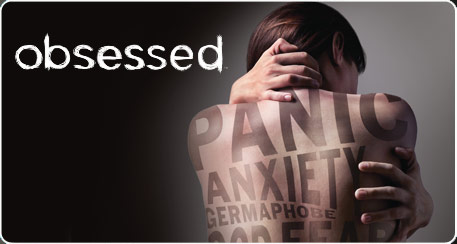People often ask me if I get offended by jokes and movies about OCD. The answer is usually no, because I think it’s healthy to see the humor in one’s afflictions, and the movies, when done right, educate the masses on what it’s like to suffer from this scourge. But one thing does piss me off.
It’s when people say they “went OCD” after doing such routine tasks as cleaning their house, cooking or completing a work project.
Mood music:
http://youtu.be/72rWAe0pUdQ
When someone says they “got all OCD” with particular tasks, I usually keep my mouth shut. In most cases no one gets hurt from such talk and everyone I know who has tossed around the acronym so casually have done so without malice, and are good people I’m grateful to call friends, colleagues and family.
But I also think if someone is going to say they have OCD, they should know what the disorder really entails. Having a Type-A personality doesn’t cut it.
Sure, there are parts of my own OCD that look like Type-A activity. I tend to swing for the fences when a task is before me, and I have had a lot of career success that was in part fueled by the freakish drive I get when the OCD runs hot.
But there’s more to it. Much more.
For me, OCD also means crippling obsessions and compulsive behavior: worry that has spun out of control and made me physically sick. The itching urge to check doors over and over to make sure they’re locked or check my laptop bag multiple times to make sure the computer is in fact in there. The nagging itch to go on a binge or spend money on something I can’t afford.
I’ve learned to manage these darker aspects through therapy, medicine and life experiences. But I never forget the fear and anxiety I lived with for years as the OCD spun furiously beyond my control.
I wouldn’t wish it on my worst enemy. Obviously, I sure as hell wouldn’t wish it on friends and loved ones.
So next time you describe how OCD you are, think about what that really entails.


Thanks for sharing htis. I totally agree. People often use mental illness terminology to describe their ordinary life experiences. I myself do it sometimes too even though I’m a mental health consumer myself.
I am not bothered by comments like this, especially from people who know me and understand the struggles I deal with every day. I appreciate the humor injected by friends, and interpret it as them having gained enough of an understanding to where it is “normal” for them. Those same people that endlessly tease me, are the same people that will hold my hand and walk me through an episode.
I am OCD and I have been diagnosed since I was a teenager. What I have come to realize is that many people carry some of the traits and it bugs them that they are that way. Saying its OCD is easier for them than realizing0 their own short comings. I laugh when my friends or people say things like this. My wonderful boyfriend usually is the first to say something like….awe if you want to see a true OCDer in action, you should come to our house.. and laugh and walks away. People just need an excuse for their own actions.